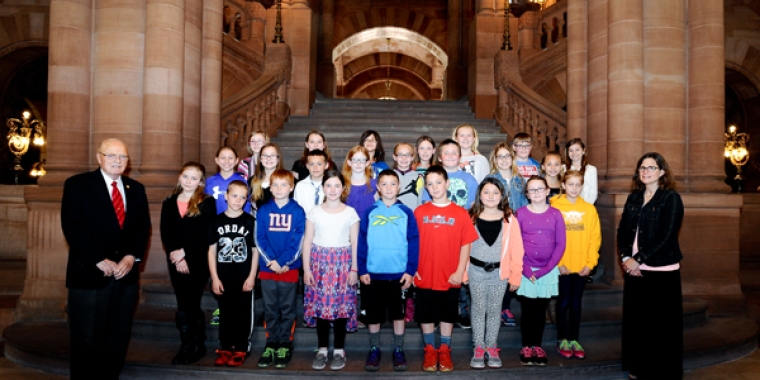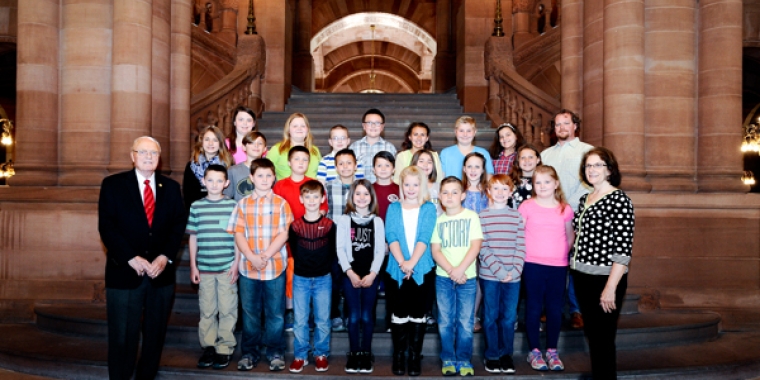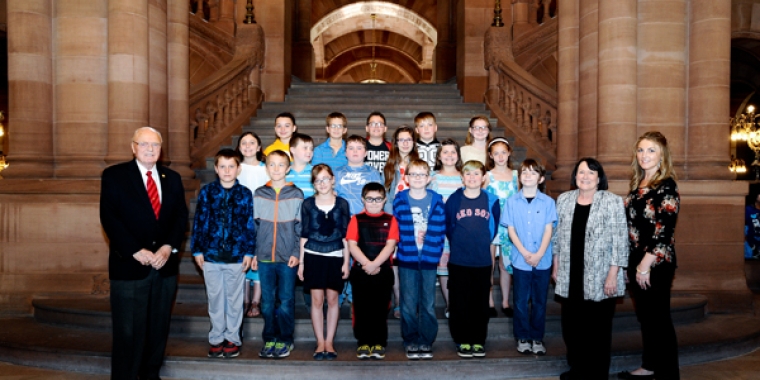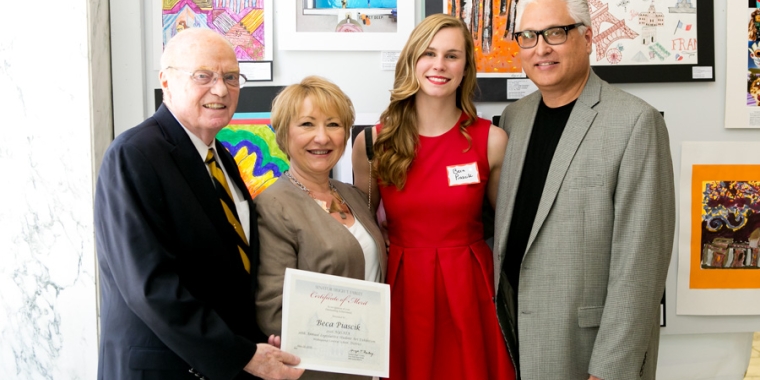
Senator Farley Notes Nov. 12th Is Elizabeth Cady Stanton Day
Hugh T. Farley
November 11, 2014

State Senator Hugh T. Farley (R, C, I - Schenectady) reminds constituents that November 12th is Elizabeth Cady Stanton Day in New York State.
November 12th was picked as the day of commemoration because Ms. Stanton was born on November 12th, 1815, in Johnstown, New York.
"Not only is she important in the history of Fulton County and New York State, Elizabeth Cady Stanton played a vital role in our Nation's history," Senator Farley said.
"She is mainly known for her work with the Women's Rights Movement, but there is so much more to this amazing woman," Senator Farley said.
She was educated at Johnstown Academy and at Emma Willard's Troy Female Seminary. While she was lucky to be born into a privileged life that allowed her to obtain an education, unlike most of the young ladies of her time, she was not lucky enough to escape the sexism that permeated her society, Senator Farley noted.
A humanitarian, Elizabeth Cady Stanton was concerned for all people, all races to be equal," Senator Farley said. "She was passionate about her work and was determined to help others."
Elizabeth spent numerous hours with her cousin, the social reformer and abolitionist Gerrit Smith, learning about anti-slavery and temperance societies. Through these meetings, she met her future husband Henry Stanton. Shortly after they married, the Stantons traveled to London in the 1840s to attend the World Anti-Slavery Convention. Although Henry was a delegate, Elizabeth was denied a seat at the convention because she was a woman.
"Between her father wishing she were a son and her being denied opportunities and rights simply because she was a woman, Elizabeth developed a strong commitment to promoting equality," Senator Farley said.
The Stantons moved from the Boston area to Seneca Falls, New York, in 1847, where Elizabeth felt stifled by the lack of what she called an intellectual community. At this time, she began actively pursuing her passionate support for women's rights. She helped spearhead the first women's rights convention in Seneca Falls in 1848 and delivered the Declaration of Rights and Sentiments. Also in 1848, she circulated petitions that convinced the New York State Legislature to pass a bill granting property rights to married women.
In 1854, Elizabeth received an unprecedented invitation to address the New York State Legislature. Her advocacy resulted in the passage of new laws that granted women the rights to their wages and to equal guardianship of their children. She helped organize the National Woman Suffrage Association in 1869, and in 1878 she drafted a federal suffrage amendment that was introduced repeatedly in Congress. The amendment, in substantially the same language, was finally adopted in 1919.
Elizabeth Cady Stanton died in 1902, almost 20 years before women were able to vote, but her efforts helped to change laws and attitudes. On November 2, 1920, some 8 million women legally voted in the United States for the first time. By designating November 12th as Elizabeth Cady Stanton Day, New York State seeks to honor and recognize the contributions that she made to our State and Nation.
Senator Farley has a couple of Elizabeth Cady Stanton brochures available on his website, including a walking tour of Johnstown. To obtain copies of those PDF files, visit http://www.nysenate.gov/senator/hugh-t-farley/content/report
They can also be accessed at http://www.nysenate.gov/files/pdfs/Stanton%20Walking%20Tour.pdf and http://www.nysenate.gov/files/pdfs/Elizabeth%20Cady%20Stanton_2.pdf
Share this Article or Press Release
Newsroom
Go to NewsroomSenator Farley Salutes Mrs. Caraco's Class
May 20, 2016

Senator Farley Meets Mayfield Students
May 20, 2016

Senator Farley Greets Fourth Grade Students
May 20, 2016

Senator Farley Greets Nisky Student
May 19, 2016
